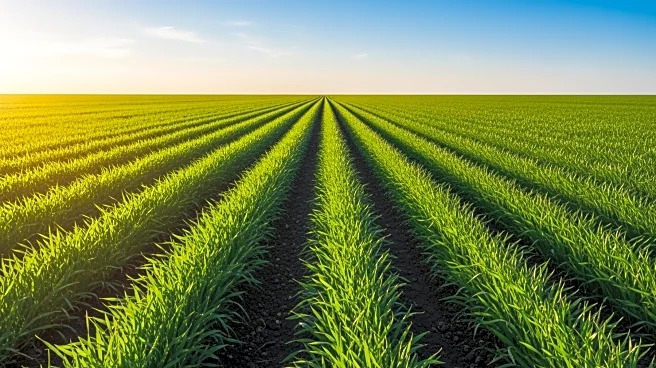What's Happening?
At the COP30 conference in Belém, Brazil, agriculture's dual role as both a victim and contributor to climate change is under scrutiny. The sector faces challenges such as droughts and extreme weather,
which threaten food security, while also being a significant source of greenhouse gas emissions. The conference serves as a platform to discuss adaptation strategies and innovations for climate-resilient agriculture. The Research Institute of Organic Agriculture (FiBL) is actively participating, presenting research on organic farming and agroecological approaches that enhance soil fertility, reduce emissions, and increase productivity. These strategies are seen as vital for making agriculture more sustainable and resilient to climate change.
Why It's Important?
The discussions at COP30 are crucial as they highlight the need for sustainable agricultural practices to combat climate change. Agriculture is a major contributor to global emissions, and transforming the sector is essential for achieving climate goals. The emphasis on organic and agroecological methods could lead to significant reductions in emissions and improvements in soil health, benefiting both the environment and food security. This shift could also influence policy frameworks and encourage the adoption of sustainable practices worldwide, potentially leading to a more resilient global food system.
What's Next?
The outcomes of COP30 could lead to increased support for research and implementation of sustainable agricultural practices. Stakeholders, including governments and international organizations, may push for policies that promote organic farming and agroecology. The conference could also inspire further collaboration between scientists, farmers, and policymakers to develop innovative solutions for climate-resilient agriculture. The ongoing discussions and presentations at COP30 are expected to shape future strategies and commitments in the agricultural sector.








